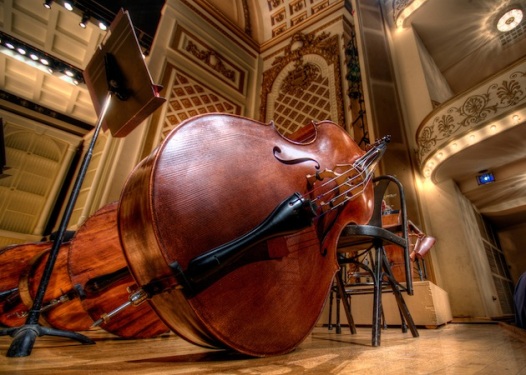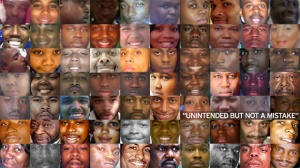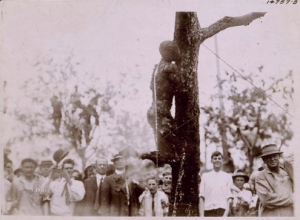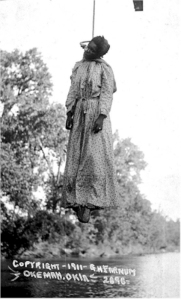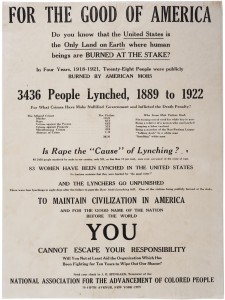Psalm 51: 1-17 and Isaiah 58:1-12
Last year for Lent, I gave up white supremacy, cis-hetero-patriarchy, and all the hegemonic idols that never had any intention of allowing me or the Others to live. This year I’m thinking about the excesses, that we might think of as loss, but have the capacity to compose/formulate meaning in the world. Formation. Clean hearts? Yes. Clean from self hatred, others hatred, doubt, and all the ways that black-femme loathing for profit/prophet manifests itself in me and in the world… I pray that prayer every single day… “Create in me a clean O God, and renew in me a right spirit.” Yes. (yaaass.) Formation and re-formation.

But the excess that goes missing in the cracks, that slip through after the sharp beat… the sharp tongue, the death that is performed by black lives, the meaning that is seemingly absent but present is demanding a witness to its testimony. The loss…the ghosted history from the dead bloated bodies, destroyed city, drained swimming pools. Excess… hot sauce, crawfish, cheddar bay biscuits, children playing, undulating excessive fleshiness-blonde weave-Afros-string stretched hair-Afro.Creole.French.Spanish.Afro.Negro-Texas Bama-chocolate of every shade. Every shade. Excess. Even if you don’t understand every lyric from Beyonce’ Knowles’ latest single that broke the Internet on Saturday, the stunning visuals and phrases throughout the video indicate meaning that are beyond the simplicity of the words themselves. The accent, the inflections tell a bigger story about New Orleans, the south, black women-ness, gender, gender identity and all the shades of blackness that all have a slippage that sometimes goes missing but is always excessive in the ways/methods they show up. In In the Break: The Aesthetics of the Black Radical Tradition, Fred Moten asks the question: “where do words go?[…] [there is] a difference between words and sounds; […] words are somehow constrained by their implicit reduction to the meaning they carry […] a missing accent or affect; the impossibility of a slur or crack and the excess – rather than loss – of meaning they (words) imply (p.42).” Slay. Slain.
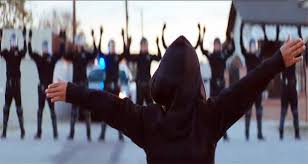
It was no mistake that Beyoncé released this video the weekend of Trayvon Martin and Sandra Bland’s birthdays, Mardi Gras, the Superbowl, and for us Ash Wednesday the beginning of Lent. It was also no mistake that she was paying homage to the King of Pop, the 50th Anniversary of the founding of the Black Panther Party, Afros, Malcolm X – both very black and global citizen in her half time appearance at the Superbowl. In the current movement/moment of Black Lives Matter, it is important to realize the disparate parts of blackness that her performance brings together… past, present and future. The precarity of black life is not new… it is always at risk of being stolen, ghosted, killed, oppressed, drowned and burned (shot) to the ground. Slay. Slain.


Bringing these insufficient words to the Lent/Ash Wednesday text, the performativity of disparate parts that slip through the cracks into excess find themselves in Isaiah. I won’t go deep into that Isaiah was concern with hypocrisy and boastful fasting (which Beyoncé directly addresses with the lyric “y’all n-words corny with that Illuminati mess.” And so does Isaiah 58:5 “Look, you fast only to quarrel and to fight and to strike with a wicked fist. Such fasting as you do today will not make your voice heard on high.” Seriously, church people, let that go. There’s not a “there” there. Stop it.) The beauty of the video and the Isaiah text talks about fasting (go with me metaphorically here). Fasting that is absence is also excess. “Is not this the fast that I choose: to loose the bonds of injustice, to undo the thongs of the yoke, to let the oppressed go free, and to break every yoke? Is it not to share your bread with the hungry, and bring the homeless poor into your house; when you see the naked, to cover them, and not to hide yourself from your own kin? (Isaiah 58: 6-7)” Absence of oppression, injustice, and bondage. Excess of food for the hungry, a home – a sense of belonging for the homeless, clothing for the naked. These things fall through the cracks when we worry about being respectable. The yoke of racism, sexism, transphobia, homophobia, classism, ableism etc kill us. They slay us. Slain.
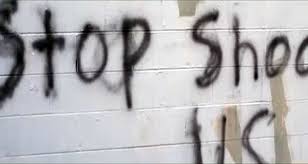
I don’t know that I agree with Bey that “the best revenge is your paper,” but I do think that the voice that protests, the light that breaks forth like the dawn (Isaiah 58: 8), is the healing for which we are seeking this Lent. The healing is the self-redemptive, restorative love for which we are looking. The healing is the hot sauce, the cheddar bay biscuits, all the colors of black, brown and beige, and even the loveliness of fleshy gloriousness. They are the food of self-affirmation, love and value in the world that we’ve been waiting to see. The shelter of beautiful people, the beautiful dance, the beautiful skins, the beautiful people slain in the spirit, the beautiful culture that make up the far-wideness of blackness that slays and is living in this excess of meaning. Formation. Re-formation. And I slay, you slay, we slay.

— Cecilia Olusola Tribble is an arts and cultural educator, consultant and critic, with a M.T.S. from Vanderbilt Divinity School and a M.A. in Performance Studies from New York University.

